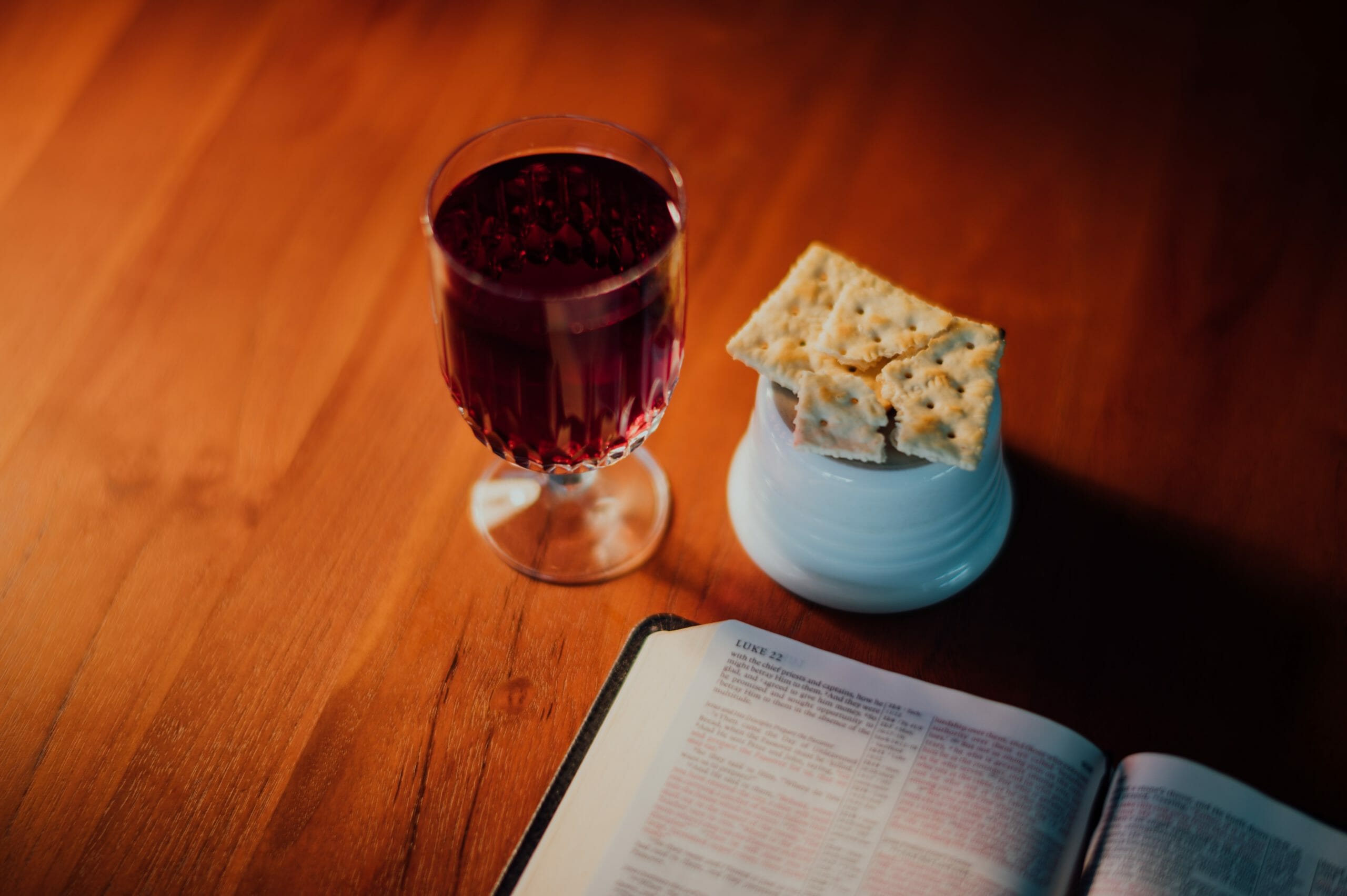
Photo by CHUTTERSNAP on Unsplash
Pandemic realities and the table fellowship of our Lord
Bryan Jackson
October 2, 2020
In the Christian world, the first Sunday of October is also known as World Communion Sunday (originally World Wide Communion Sunday). Though it has its origins in the Presbyterian Church, many denominations now observe it. Some have argued against World Communion Sunday based on theological or philosophical grounds. Despite this, it continues to resonate with many. Good reasons exist to preserve it, such as the argument that communion should be received every time it is offered.
Believe it or not, there are a few Baptists who prefer to think of Holy Communion as a sacrament instead of an ordinance. The concept of grace usually constitutes the distinction. The Eucharist, Lord’s Supper, Holy Communion, Jesus’ last meal—it is in and of itself significant because the event is recorded in all four canonical gospels. Jesus invites those who would believe to come to his table. It is remarkable not just based on ritual alone; it is momentous because Jesus institutes a blessing (Matt. 26:26; Mk. 14:22), and the Passover meal was transformed into something not yet seen. Some will insist that Holy Communion is a “church thing,” something we do inside a building to commemorate—regardless of what we choose to call it—an event from long ago.
Yet, we Christians often consider ourselves a mission-based people. This calls into question whether table fellowship should be an everyday expression of how we, as people of the Jesus way, living and worshiping from a Judeo-Christian perspective, welcome and serve those with whom we interact, regardless of their own spiritual or religious ideas. In Christian services, regardless of denominational interpretations, Holy Communion is a ritual rooted in both the physical and spiritual, as John W. Friesen writes: “Sacraments, rituals, ordinances are physical enactments that lend authenticity to one’s spiritual search and assist in appreciation of basic transcendental beliefs.”[i] Communion can mean different things to different people, regardless of faith background.
If it is, in fact, just as much about our daily hospitality, where does that leave us in our respective ministries to God and others? Race relations and COVID-19 wait for no man or woman. The table fellowship of our Lord extends beyond church boundaries and circumstances. Certain denominations and churches still practice closed communion—communion available only to baptized people and/or church members. This exclusion is rooted in the theology of conviction and tradition.
A valid question is, as a matter of daily practice, would Jesus have barred others from his table to support his own theology?
The current pandemic has altered what we do and how we do it; the practice of communion—during the liturgy and in our daily table fellowship—is no exception. Despite our altered circumstances and the deaths of so many, the spiritual food with which we draw and serve continues to multiply. No pandemic is going to alter that.
Rosemary McCombs Maxey (Muscogee) has an interesting observation about table fellowship. She writes, “One must ask, What exactly is the criteria for sitting diversely at the Lord’s Table? What conditions and limits are placed on such an invitation?”[ii] To whom are we denying the ability to partake in our own world communion?
The bread and the cup embody a spiritual as well as literal hunger. Dr. Greg Carey quotes Robert J. Karris, O.F.M. regarding Jesus and the concept of food, “In Luke’s Gospel Jesus is either going to a meal, at a meal, or coming from a meal.”[iii] If Jesus was preoccupied with food, it had as much to do with satisfying his followers’ spiritual appetites as their literal ones. We are called to do the same regarding our respective ministries of hospitality. Being loving in our daily communion with others is our first calling. It is meet and right so to do.
The current pandemic has altered what we do and how we do it; the practice of communion—during the liturgy and in our daily table fellowship—is no exception. The hope is that it transforms us, as well as those to whom we endeavor to be hospitable. Liturgically, pastors and priests have spent the past seven months or so serving communion to a small, select group of people or to themselves on behalf of their people. It is different now; yet it is still transformative. It becomes even more metamorphic when the pastor and congregations practice Jesus’ table fellowship by taking their worship to the community, even during heightened periods of isolation.
Though the current situation is not ideal, we have proven that table fellowship can be extended and received virtually in this modern yet potentially infectious climate.
Holy Communion, for some, is the center of church worship and has guided a number of people to the ordained ministry or to other life-changing events. The ritual is so powerful that Christians will testify to supernatural aspects concurrent with their experiences of it. Despite our altered circumstances and the deaths of so many, the spiritual food with which we draw and serve continues to multiply.
No pandemic is going to alter that.
The Rev. Bryan D. Jackson is an American Baptist minister and a member of the Mount Hood Cherokees, a satellite community of the Cherokee Nation. He lives on Vashon Island, Washington and is the author of Chattahoochee Rain: A Cherokee novella.
The views expressed are those of the author and not necessarily those of American Baptist Home Mission Societies.
[i] John W. Friesen. Native American Theology Through A Christian Lens: Contrasts and Comparisons. (Self-published, 2014), 55.
[ii] Rosemary McCombs Maxey. “Who Can Sit At The Lord’s Table? The Experience of Indigenous Peoples.” In Native and Christian: Indigenous Voices on Religious Identity in the United States and Canada, edited by James Treat. (New York: Routledge, 1996), 41.
[iii] Greg Carey. Sinners: Jesus and His Earliest Followers. (Waco: Baylor University Press, 2009), 21.


